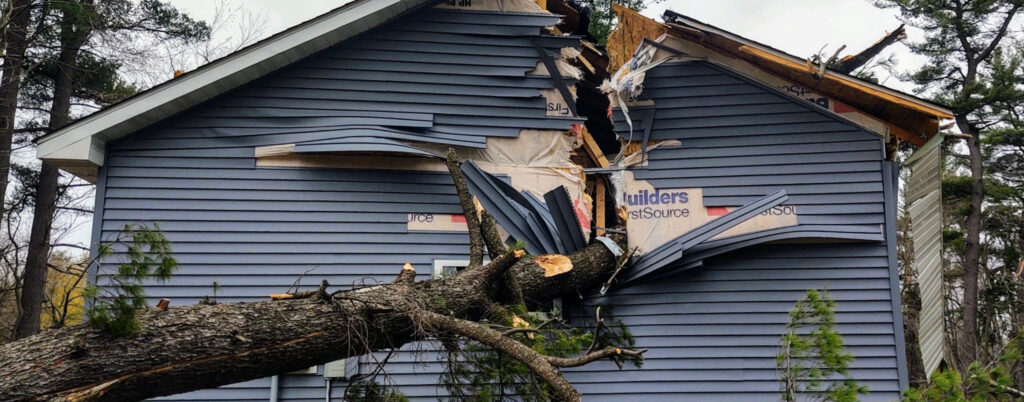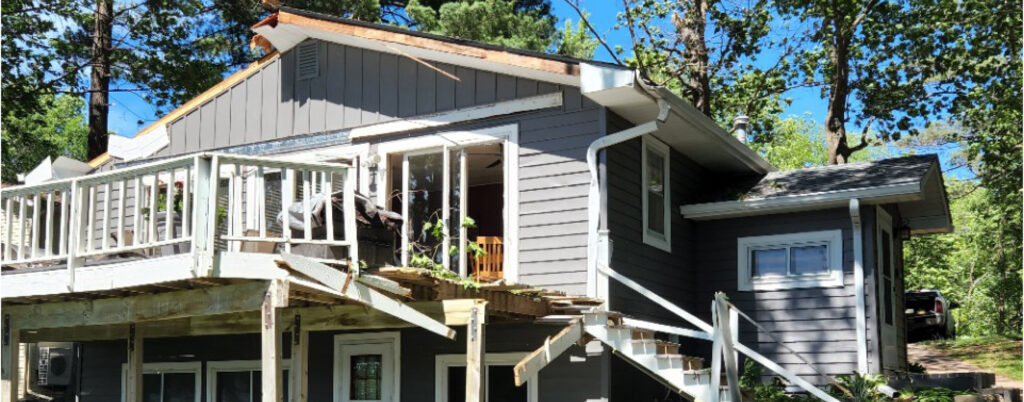
How You Can Prepare for Severe Weather
Severe weather can strike quickly. That’s why it’s important to be prepared for it to keep yourself and your family safe.
Severe Weather Awareness Week in Minnesota is April 7th – 11th, 2025. This week serves as a reminder of the importance of severe weather preparedness. It’s a great time to evaluate how well-prepared you and your household are for severe storms and other emergencies.
Receiving Emergency Alerts
Most cell phones are enabled to receive Wireless Emergency Alerts, but you can also download the Federal Emergency Management Agency (FEMA) mobile app for real-time weather and other emergency alerts.
But what if your phone battery is dead and you don’t have immediate access to a charger? It’s important to have other ways to receive emergency alerts.
- The national Emergency Alert System (EAS) broadcasts through TV and radio.
- The NOAA Weather Radio All Hazards (NWR) is a network of radio stations that broadcast continuous weather updates, but they also broadcast non-weather emergency alerts as well.
- The Integrated Public Alert and Warning System (IPAWS) is FEMA’s national system for local alerts. This system allows local authorities to send their own emergency alerts simultaneously via NOAA weather radios, sirens and digital billboards. IPAWS alerts can be locally targeted so only devices that are in the affected area receive an alert.
Have a Plan
Make sure everyone in your household knows what to do and where to go when severe weather strikes. In case of a severe thunderstorm or tornado watch or warning, get to the lowest level of your home, ideally the interior part of your basement.
If your home doesn’t have a basement, go to an interior room on the lowest floor that does not have windows, such as a center hallway, bathroom, or closet.
You should also have a plan on how you will communicate in the midst of and after an emergency. Mobile networks can become overwhelmed if a lot of people are trying to make calls in an emergency. Text messages, however, use less bandwidth and can be transmitted more reliably.
Utilizing social media is another great way to communicate with family and friends during or after an emergency. Facebook even has a feature that allows you to mark yourself as ‘safe’ after a storm or other disaster.
Build an Emergency Kit
You should keep an emergency kit in the place you take shelter in your home during a storm. Here are some things you should keep in that emergency kit:
- Non-Perishable Food
- Water
- Portable Emergency Radio
- Emergency Cash
- Pet Food
- Flashlights
- Batteries
- First Aid Kit
- Cell Phone Chargers
- Activities for Children
- Blankets/Sleeping Bags
- Extra Clothing
- Soap/Hand Sanitizer/Disinfecting Wipes
- Prescriptions
- Glasses/Contact Lens Solutions
- Fire Extinguisher
- Paper and Pens/Pencils
You may not think some of these items will be necessary for your emergency kit given that severe storm often pass quickly. However, if a tornado tears through your home and you lose everything, this emergency kit will be vital for you and your family.
What to Do After a Storm

Be Aware of Potential Post-Storm Hazards
- Carefully check around your home for damage, both inside and out. If you find structural damage, like cracks in your foundation or damaged support beams, your home may be unsafe.
- Check gas, electrical, and water lines for damage. If you smell gas or find a broken line, shut off the main valve from the outside and call for help right away.
- Avoid using matches, lighters, appliances, or light switches until you are sure there are no gas leaks. These could ignite the gas and cause an explosion.
- If you see frayed wiring or sparks, or if it smells like something is burning, you should immediately shut off your electrical system at the main circuit breaker.
- Be on the lookout for hazards such as broken glass and exposed nails.
- Do not enter a damaged structure until it is deemed safe by a professional.
- Stay away from power lines.
- Leave your home or building immediately if you hear shifting or other unusual noises. The building may be on the verge of collapse.

Call a Reputable Contractor for Repairs
Contractors will come knocking immediately after a severe storm. Some may be reputable, some may not be.
Always do your research before signing with a contractor to replace your roof, siding, or make other storm damage repairs. Do some digging online or reach out to friends, family, or your insurance agent for their contractor recommendations.
If your home or business has severe damage that needs to be addressed immediately, call an emergency response contractor such as Kiser Construction.
Click the subscribe button below to be the first to see our new blog posts! One to two times a month, you’ll receive tips and tricks for home maintenance and disaster prevention.
